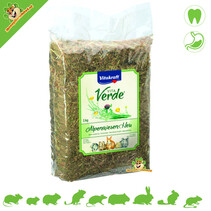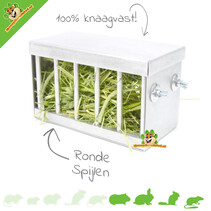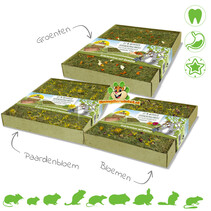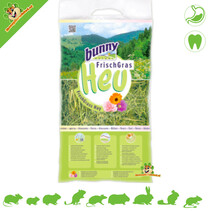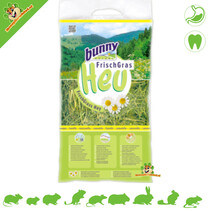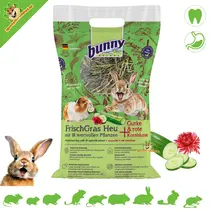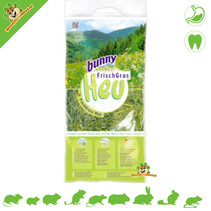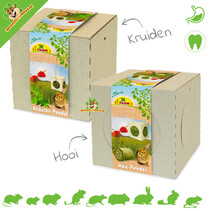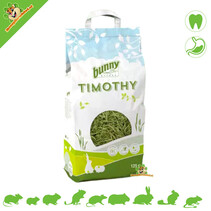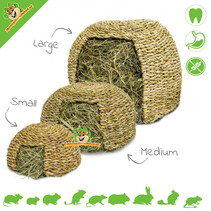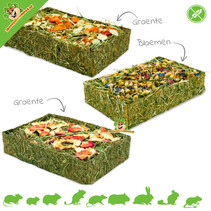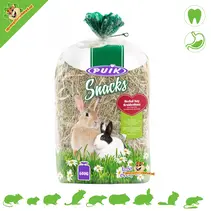Hay for Degus
- Ordered before 5 p.m., shipped the same day!
- Al 14 jaar een begrip!
- Delivery from our own stock
- Ordered before 5 p.m., shipped the same day!
- Al 14 jaar een begrip!
- Delivery from our own stock
Order hay for your Degus quickly and easily at DRD Rodent Shop ® The online Degu Webshop!
For hay for your Degus, you have come to the right place in our Degus webshop! Hay is very important for Degus. This is because Degus have a so-called 'full stomach'. Their stomach is not very muscular and therefore cannot independently transport the food pulp to the next part of the intestine. This is supposedly taken over by the following food portions. This also explains why Degus eat many small portions of food per day on average. Their diet consists mainly of fibers!
The large appendix of Degus is the so-called fermentation chamber. This is where the fine dietary fibres of the hay go. There they are converted into proteins, vitamin B and vitamin K by special bacteria.
Degus have a pronounced need to gnaw. That is why they mainly need a structure and fiber rich hay. The hay is not only used as food, but also to meet the gnawing need. A high-quality hay can be recognized by a number of points.
- Smell . Hay should smell fresh. If the hay smells dusty and musty it may contain mold. This is not healthy for either the animal or the owner.
- Feeling . The hay should consist of long, crisp blades.
- Avoiding poisonous plants . A responsible hay producer knows his land and what to look for. Regular inspection for poisonous plants is necessary.
- Untreated natural areas . A high diversity of herbs in the hay is very healthy. It is also important that nature is protected.


